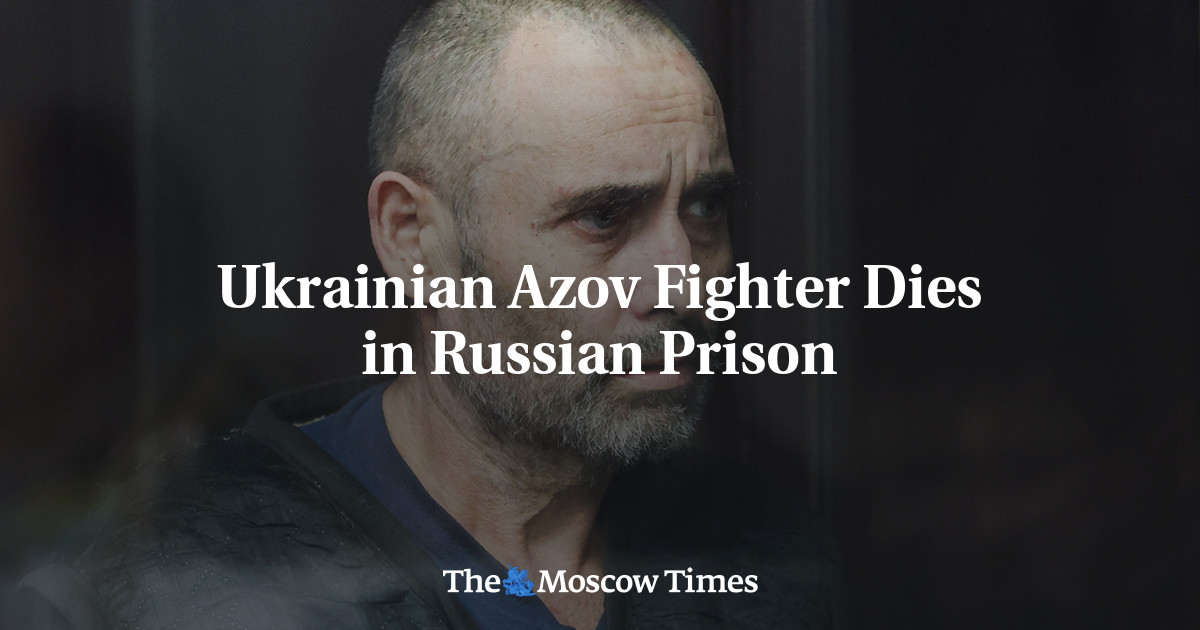
A member of Ukraine’s Azov battalion has died in Russian custody, independent Russian media reported and Ukraine’s human rights commissioner confirmed Wednesday.
Oleksandr Ishchenko was among 24 former and current Azov members, including nine women, who were arrested in southern Russia on terrorism charges in March-May 2022. Russia’s Memorial human rights organization considers all of them to be political prisoners.
News of Ishchenko’s death at age 55 emerged during a military court hearing in the southern Russian city of Rostov-on-Don, according to the Mediazona news website.
The court reportedly postponed hearings for Ishchenko and his 23 co-defendants’ case until Aug. 7 to await documentation on his death from the Rostov-on-Don pre-trial detention center where he was held.
Ukrainian ombudsman Dmytro Lubinets said he learned from Ishchenko’s daughter that he had died in Russian custody “nine days ago.”
“No one has officially notified the Ukrainian side,” Lubinets wrote on Telegram, adding that the Geneva Conventions on the treatment of prisoners of war require that they receive adequate medical care.
The ombudsman said he had asked his Russian counterpart Tatiana Moskalkova to inform him of the cause of Ishchenko’s death and the circumstances surrounding it.
Ishchenko was reported to have suffered a “hypertensive crisis” — for which he was administered an injection — as early as last July. Prosecutors claimed at the time that he was “feeling fine.”
Azov fighters led the defense of the besieged city of Mariupol in the first months of Russia’s 2022 invasion of Ukraine — an effort that later became a symbol of Ukrainian resistance.
According to Mediazona and the Ukrainian news outlet Babel, Ishchenko joined Azov as a driver in the early days of the invasion.
The battalion formed in 2014 as a far-right volunteer paramilitary unit fighting against pro-Russian separatists in eastern Ukraine but was later reformed and integrated into Ukraine’s national guard. Moscow has used Azov’s past extremist right-wing links to justify what it calls its “denazification” of Ukraine.
Russia’s Supreme Court labeled Azov a “terrorist organization” in August 2022, months after the 24 accused members were detained.
The nine women on trial were said to be cooks or cleaners and two men are being tried in absentia after being included in a prisoner exchange in the fall of 2022.
According to the Switzerland-based news outlet Justice Info, only six of them appeared to be active soldiers at the time of their capture, while seven stopped military service before the Russian invasion. Only one reportedly admitted his guilt last year.